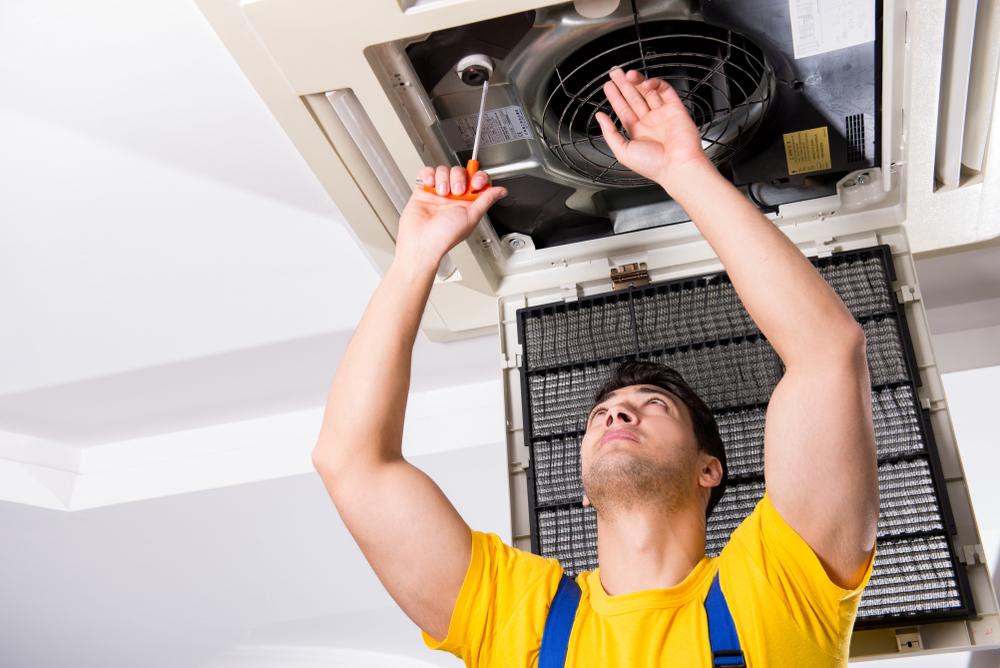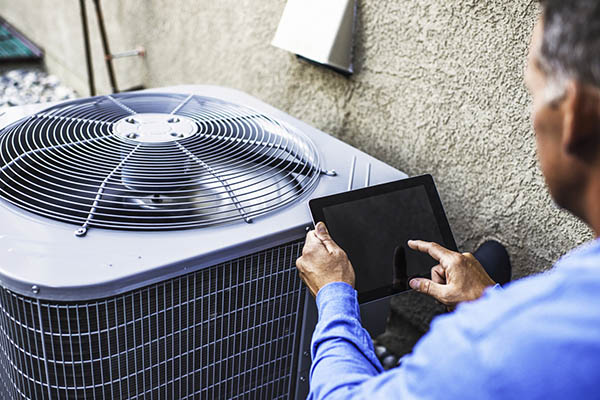Selecting Between a Warm Pump and Heater: Secret Considerations for Your Heating And Cooling Requirements
When evaluating heating alternatives for HVAC requires, the decision in between a warm pump and a heater can be complicated. Each system offers unique benefits tailored to particular climates and energy performance goals. Recognizing these differences is necessary for making an enlightened selection. Trick elements such as setup prices and ecological impact even more make complex the option procedure. Which option really lines up with one's convenience and sustainability preferences? The following sections will discover these considerations in information.
Comprehending Warm Pumps: How They Work and Their Advantages
While many house owners consider different home heating choices, understanding how heatpump function and their benefits can considerably affect their choice. Heatpump run by moving heat instead of generating it. In the wintertime, they remove heat from the outdoors air or ground and transfer it inside your home, while in the summertime, they reverse this process, cooling down the home by expelling warmth outside. This dual capability makes them functional for year-round climate control.One of the key advantages of heat pumps is their power efficiency. They make use of considerably much less electrical power compared to typical heating unit, potentially causing lower energy expenses (heat pump service). Furthermore, warm pumps have a smaller carbon footprint, making them an eco-friendly selection. They additionally call for less maintenance than conventional systems, adding to long-term price financial savings. Generally, recognizing the mechanics and benefits of heat pumps can help homeowners make notified choices concerning their heating and cooling down requirements
Discovering Heating Systems: Types, Procedure, and Benefits
Furnaces come in numerous types, consisting of gas, electrical, and oil models, each with distinct functional devices. Understanding these differences is vital, as they influence effectiveness and home heating efficiency. In addition, furnaces offer various advantages, such as regular heat outcome and reliability in chillier climates.
Kinds of Heating systems
Heating systems can differ significantly in design and operation, with heaters being a popular option among house owners. There are a number of sorts of heaters, each utilizing various gas resources and technologies. Gas furnaces are usual, leveraging all-natural gas to create warmth successfully. Electric furnaces, on the various other hand, utilize electrical resistance to produce heat, usually favored for their uncomplicated setup. Oil furnaces, while much less common, work in locations with minimal gas access (heat pump service). Additionally, condensing heaters make the most of energy performance by catching and reusing exhaust gases. Each type runs with a system of warmth exchangers and ductwork to disperse warm air throughout a home. Comprehending the distinctions in between these heating system kinds is necessary for educated cooling and heating decisions
Advantages of Heating systems
For property owners looking for trusted warmth during chilly months, the advantages of furnaces are considerable. Heating systems provide consistent heating, making sure also temperature levels throughout the home. They are particularly reliable in extreme cold, usually outperforming warm pumps in freezing conditions. Various kinds, consisting of gas, electrical, and oil heaters, offer flexibility to meet varied requirements and preferences.Furnaces also tend to have lower first installation costs compared to heatpump, making them an extra easily accessible option for numerous. Their durable layout adds to a much longer lifespan, with lots of devices lasting over 15 years with correct maintenance. In addition, modern-day furnaces are commonly outfitted with innovative innovation for improved effectiveness, which can result in reduced power costs. Overall, furnaces continue to be a reliable selection for efficient home heating.

Energy Effectiveness: Contrasting Warmth Pumps and Furnaces
When contrasting energy efficiency between heatpump and heaters, the Seasonal Power Performance Proportion (SEER) plays a necessary duty in identifying efficiency. Furthermore, an operational expense evaluation exposes the long-lasting economic ramifications of each system. Recognizing these variables can direct house owners in making educated decisions regarding their heating solutions.
Seasonal Energy Effectiveness Proportion
Power effectiveness plays an important role in the decision-making procedure in between heatpump and furnaces, specifically when considering the Seasonal Power Effectiveness Proportion (SEER) This statistics actions the cooling performance of heat pumps over an entire cooling season, giving a standardized method to evaluate performance. Greater SEER rankings show higher energy efficiency, equating to reduced power intake and lowered utility bills. In comparison, heating systems are normally examined utilizing the Yearly Gas Use Effectiveness (AFUE) score, which mirrors heating performance. When comparing these two systems, house owners need to prioritize SEER ratings for heatpump, as they straight effect total power savings and ecological sustainability. A complete understanding of SEER can significantly influence the long-lasting satisfaction and cost-effectiveness of the chosen a/c service.
Operational Expense Evaluation
Understanding the operational expenses connected with warm pumps and heating systems is important for homeowners reviewing their options. Heatpump generally provide higher energy effectiveness, converting electrical power right into warmth with minimal waste. This leads to lower month-to-month energy bills, particularly in moderate climates. Alternatively, standard heating systems, especially gas models, might have lower upfront expenses but can incur higher operational expenses over time as a result of sustain costs and efficiency ratings.Moreover, heatpump can function as both heating and cooling systems, possibly reducing the need for separate HVAC systems. While initial investments for warm pumps might be higher, their long-term savings in power effectiveness can make them a more economical option for many households. Mindful analysis of neighborhood power rates is necessary to figure out the most effective option.
Setup Prices: What to Anticipate for each and every Heater
Installation expenses for heating unit can vary significantly between heatpump and furnaces, influencing homeowners' choices. Heatpump usually have higher ahead of time installation costs, commonly varying from $3,500 to $8,000, depending on the system dimension and complexity of setup. This consists of the outside system, indoor handling system, and needed ductwork modifications. Alternatively, heaters have a tendency to have reduced preliminary costs, averaging between $2,500 and $6,000, which can be appealing for budget-conscious property owners. Installation expenditures can boost if comprehensive ductwork is required.Moreover, the choice of gas type for heaters-- all-natural gas, gas, or electrical-- can additionally affect setup prices. While heat pumps use energy efficiency, their preliminary investment may prevent some customers. Ultimately, evaluating installation prices alongside lasting financial savings and efficiency will assist property owners in making notified choices about their furnace.
Environment Considerations: Which System Carries Out Better in Your Area
Just how do environment conditions influence the efficiency of heater? The efficiency of warmth pumps and heating systems can vary significantly depending click reference upon the regional climate. In modest environments, heatpump succeed by effectively moving warmth from the outdoors air, making them an energy-saving alternative. Their performance reduces in extremely chilly temperatures, where they may have a hard time to remove sufficient warmth. Conversely, furnaces, particularly gas models, supply constant and dependable warm despite outdoor problems, making them more effective in chillier regions.In locations that experience milder wintertimes, heatpump can operate efficiently year-round, supplying both cooling and heating. On the other hand, areas with severe winter seasons often profit from the effectiveness of heaters. Ultimately, recognizing the regional climate is important when choosing between a heatpump and a heater, as it straight impacts their operational effectiveness and general performance.
Upkeep Demands: Long-Term Care for Warm Pumps vs. Furnaces
While both heat pumps and furnaces useful site need routine maintenance to assure peak efficiency, their specific needs and care regimens vary considerably. Heating systems commonly need less constant interest, with yearly assessments sufficing to look for gas leakages, tidy filters, and analyze general capability. Their simpler design usually allows for straightforward repairs.In contrast, heatpump necessitate semiannual maintenance due to their double function in home heating and air conditioning. This consists of cleaning coils, examining refrigerant levels, and guaranteeing that both the interior and outside systems function at their finest. In addition, heatpump maintenance typically entails more detailed elements, making professional servicing essential.Neglecting upkeep can result in reduced performance and increased energy expenses for both systems. Inevitably, property owners need to think about these long-lasting treatment needs when choosing between a warmth pump and a heater, as positive upkeep can prolong the life-span and performance of either system considerably.
Environmental Effect: Selecting a Lasting Heating Alternative
The ecological influence of heater is an essential examination for house owners seeking lasting alternatives. Heatpump are normally much more energy-efficient than typical heaters, as they transfer warmth rather than produce it, considerably lowering carbon exhausts. By using eco-friendly power resources, such as air-source or geothermal warm pumps, home owners can better reduce their eco-friendly footprint.On the other hand, gas heaters emit greenhouse gases and add to air contamination, though they usually give greater warm outcome. Improvements in innovation have led to the advancement of high-efficiency furnaces that decrease emissions.Ultimately, Your Domain Name selecting a heating system includes weighing effectiveness versus environmental impact. Home owners are urged to review regional energy sources and rewards for sustainable systems, making sure a choice that lines up with both personal convenience and environmental obligation. The choice affects not just immediate convenience however also long-lasting sustainability and ecological health.
Regularly Asked Questions
Just How Long Do Warm Pumps and Furnaces Normally Last?
The lifespan of warm pumps normally ranges from 15 to two decades, while furnaces can last between 15 to 30 years. Regular maintenance substantially impacts their long life and efficiency in providing home heating services.
Can I Utilize a Warmth Pump in Extremely Cold Climates?
Warm pumps can run in exceptionally cold environments, yet their performance diminishes as temperature levels decrease. In such problems, supplementary heating sources might be essential to keep comfy indoor temperature levels and guarantee peak performance.

What Is the Noise Degree of Warmth Pumps Versus Furnaces?
The sound degrees of heatpump and furnaces differ significantly. Typically, heat pumps run more silently than conventional furnaces, making them more suitable for those conscious appear, while furnaces might generate louder operational sounds during home heating cycles.
Are Heat Pumps Suitable for Both Cooling And Heating?
Heatpump are certainly ideal for both heating and air conditioning (furnace replacement). They function by moving warm, giving efficient temperature control year-round, making them a flexible choice for home owners seeking an all-in-one a/c solution
What Size Heating Unit Do I Need for My Home?
Establishing the proper dimension heating unit for a home requires assessing variables such as square video, insulation high quality, regional environment, and the home's format. Consulting a professional can ensure an accurate analysis and perfect comfort. Heat pumps commonly offer greater power efficiency, converting electrical energy right into heat with very little waste. In modest climates, heat pumps excel by efficiently moving warmth from the outdoors air, making them an energy-saving alternative. On the other hand, furnaces, especially gas designs, supply dependable and constant warm no matter of exterior problems, making them better in chillier regions.In locations that experience milder winters months, warmth pumps can run efficiently year-round, giving both home heating and air conditioning. Warmth pumps are normally much more energy-efficient than standard heaters, as they move warm instead than produce it, considerably minimizing carbon discharges. By making use of eco-friendly energy sources, such as air-source or geothermal warmth pumps, property owners can additionally lessen their eco-friendly footprint.On the various other hand, all-natural gas furnaces release greenhouse gases and add to air pollution, though they frequently offer higher heat result.